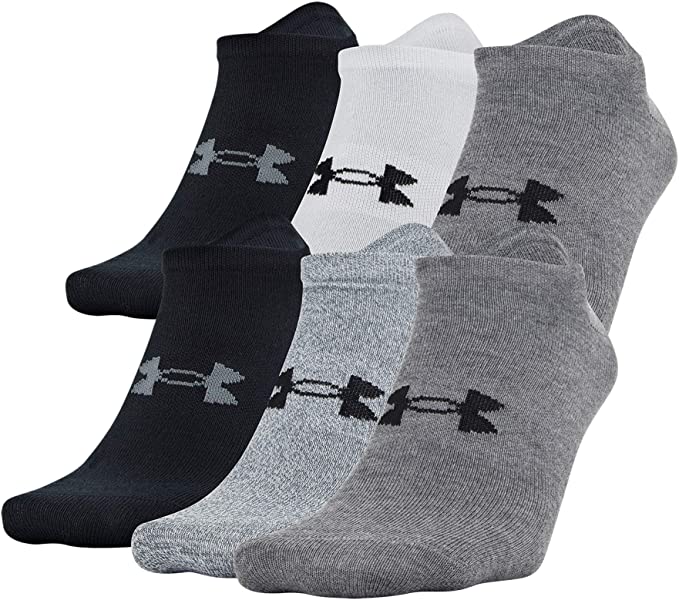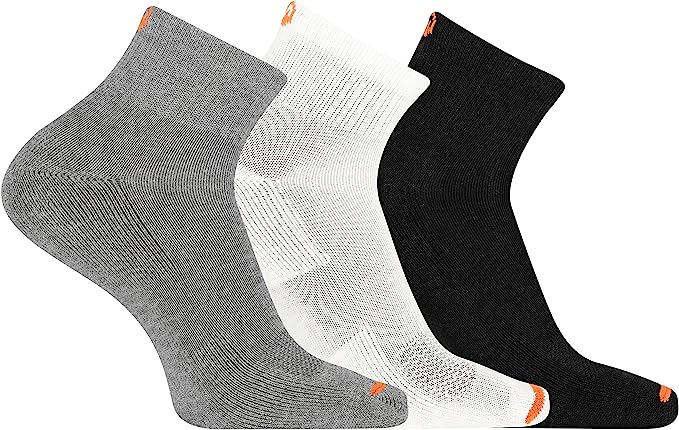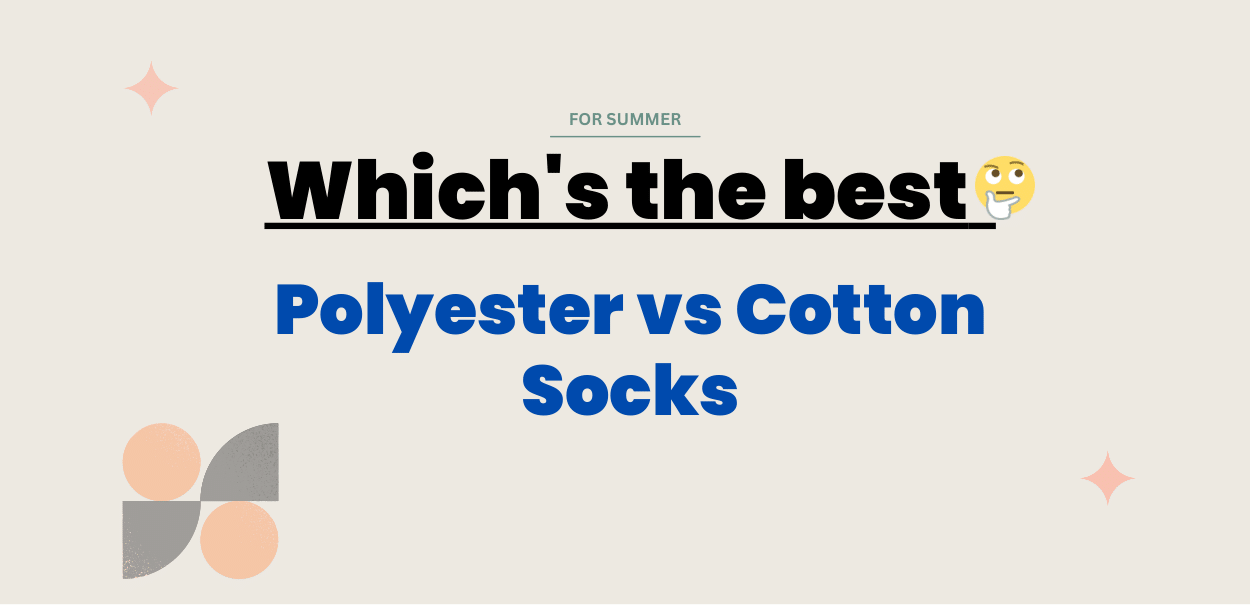Introduction:
When deciding on the best socks for summer, polyester and cotton are two popular choices to consider. Each material has its own advantages, so it’s important to understand the differences between them before making a decision.
With the hot weather and increased humidity of summer, it’s essential to find socks that offer comfort, breathability, and moisture control.
In this article, we will explore the characteristics of polyester and cotton socks to help you choose the right option for your summer sock collection. We will discuss the performance and durability of polyester socks, focusing on their ability to wick away moisture and dry quickly.
To assist you in making an informed choice, we will provide a comparison table that highlights the key distinctions between polyester and cotton socks. This will enable you to assess which features best suit your specific requirements.
By the end of this article, you will have the knowledge to select the perfect socks to keep your feet cool and comfortable during the summer months.
What are Polyester Socks?
Best Polyester Socks for Summer

Under Armour Essential Lite No Show Socks.
- 97% Polyester, 3% Spandex
- Imported
- Pull On closure
- Machine Wash
- Ultra-thin, lightweight construction for a barely-there feel
Polyester is a synthetic fabric known for its durability and performance-oriented properties. And Polyester socks are typically made from a blend of polyester and other synthetic materials. They excel in terms of moisture-wicking capabilities, making them an excellent choice for those with sweaty feet or for those who are engaged in high-intensity activities.
The fabric’s hydrophobic nature repels moisture away from the skin, keeping your feet dry and comfortable even during the hottest summer days. Additionally, polyester socks tend to dry quickly, making them ideal for outdoor enthusiasts and athletes.
On the downside, polyester socks may not be as breathable as their cotton counterparts. The synthetic fibers can trap heat and limit airflow, potentially leading to sweaty and uncomfortable feet.
However, advancements in textile technology have led to the development of breathable polyester blends that address this issue, making them a viable option for summer wear.
Pros
- Polyester socks are excellent at drawing moisture away from your skin, keeping your feet dry and comfortable.
- Polyester socks dry faster after washing or if they get wet from sweat or rain.
- They are durable, which means the socks tend to last longer and withstand wear and tear.
- These socks are less likely to wrinkle or shrink after washing compared to some other materials.
- They are generally lightweight, making them suitable for activities like sports and outdoor adventures.
- Retain their color well even after multiple washes
Cons
- Polyester is not as breathable as natural materials like cotton
- Might retain odors more than some other materials, especially if they are not washed promptly.
- Polyester is a synthetic material derived from petrochemicals, and its production has environmental implications.
What are Cotton socks?
Best Cotton Socks for Summer

Merrell Men’s and Women’s Cushioned Cotton Crew Socks
- 80% Cotton, 17% Polyester, 3% Spandex
- Imported
- Pull On closure
- Machine Washable
- Breathable mesh ventilation zones
Cotton is a natural fiber renowned for its comfort and breathability. And Cotton socks are highly absorbent, allowing them to soak up moisture and provide a cooling effect effectively. The fabric’s breathable nature enables better airflow, preventing excessive sweating and reducing the likelihood of foot odor.
Additionally, cotton socks tend to be softer and gentler on the skin, making them an excellent choice for individuals with sensitive feet.
While cotton socks offer superior breathability, they may not be as durable as their polyester counterparts. Cotton fibers tend to wear out more quickly and may lose their shape over time, especially with frequent use and washing. However, high-quality cotton socks with reinforced toe and heel areas can help mitigate this issue, ensuring longevity without compromising on comfort.
Pros
- Cotton socks are soft and cozy, providing a comfortable feeling on your feet.
- They allow air to circulate, keeping your feet cool and preventing excessive sweating.
- Cotton is a plant-based material, making it an eco-friendly choice.
- These socks can soak up moisture, helping to keep your feet dry.
- Are widely available and easy to find in various styles and colors
Cons
- Due to their absorbent nature, cotton socks may take longer to dry after washing.
- They may wear out faster compared to synthetic materials like polyester.
- Might not offer as much stretch and support as other materials.
- If not washed and dried properly, cotton socks can shrink and become too tight.
Comparison Table: Polyester vs Cotton Socks:
| Feature | Polyester Socks | Cotton Socks |
| Moisture-Wicking | Excellent | Good |
| Breathability | Moderate to Low | Excellent |
| Quick Drying | Yes | Relatively Slow |
| Durability | Excellent | Moderate |
| Softness | Moderate | Very Soft |
| Skin Sensitivity | It may cause irritation in some | Suitable for sensitive skin |
The table shows both socks material excelling in their unique qualities. The wise option here is to try a combination of both blends. There are socks varieties available that aren’t purely cotton or polyester but have some percentages of both for comfort and breathability.
Choosing the Perfect Socks for Summer- Why Sock material even matters?
Socks may seem like a simple accessory, but the material they are made of actually plays a crucial role in determining their overall performance and impact on foot health. Firstly, the choice of sock material directly affects comfort.
Materials like cotton and bamboo offer softness and breathability, preventing excessive sweating and maintaining a pleasant feeling on the skin. On the other hand, synthetic materials like polyester and nylon often provide better moisture-wicking properties, which are ideal for athletes or those with active lifestyles, as they help to keep feet dry and reduce the risk of blisters and discomfort
Secondly, the material of socks significantly influences their durability and longevity. Natural fibers like wool and cotton are generally more prone to wear and tear over time, whereas synthetic fibers like acrylic and spandex tend to be more durable and resistant to stretching.
Choosing the perfect socks for summer is more important than you might think, and the material of the socks plays a crucial role. When the temperature rises, our feet tend to sweat more, and the wrong sock material can lead to discomfort and unpleasant odors. That’s why, it’s more than important to pay attention to the material.
Frequently Asked Questions (FAQs):
1. What are the main differences between polyester and cotton socks?
Polyester and cotton socks differ in their material composition, properties, and performance. Cotton socks are made from natural fibers, offering breathability and softness, while polyester socks are synthetic, providing better moisture-wicking and durability.
2. Which type of socks is better for breathability?
Cotton socks are generally more breathable compared to polyester socks. The natural fibers in cotton allow for better airflow, keeping your feet cooler and reducing the chances of sweat accumulation.
3. Do polyester socks wick moisture better than cotton socks?
Yes, polyester socks have superior moisture-wicking properties compared to cotton socks. The synthetic fibers in polyester repel moisture and sweat, keeping your feet dry during intense physical activities.
4. Are cotton socks more comfortable to wear than polyester socks? Comfort is subjective, but many people find cotton socks to be more comfortable due to their softness and breathability. However, some individuals prefer the smooth texture of polyester socks, especially if they prioritize moisture management.
5. Which type of socks is better for sports and physical activities?
For sports and physical activities, polyester socks are often preferred. Their moisture-wicking capabilities help keep your feet dry, reducing the risk of blisters and discomfort during prolonged exercise.
6. Are cotton socks more suitable for casual wear and daily use?
Yes, cotton socks are excellent for casual wear and daily use. Their natural fibers are gentle on the skin and suitable for regular activities where intense moisture-wicking isn’t necessary.
7. Do polyester socks last longer than cotton socks?
Generally, yes. Polyester socks tend to have better durability and resistance to wear and tear than cotton socks. However, the lifespan of socks can also depend on factors like manufacturing quality and maintenance.
8. Which type of socks is more environmentally friendly?
Cotton socks are considered more environmentally friendly since they are made from natural, biodegradable fibers. Polyester socks, being synthetic, are not as eco-friendly and take longer to break down in the environment.
9. Can wearing polyester socks cause foot odor?
Polyester socks’ moisture-wicking properties can help reduce foot odor by keeping your feet dry. However, if you have sweaty feet, moisture may still accumulate, leading to potential odor issues. Regular hygiene practices and breathable shoes can help mitigate foot odor.
10. Are there any potential skin irritations associated with either type of socks? Some individuals may experience skin irritations with certain synthetic materials, including polyester. Cotton, being a natural fiber, is less likely to cause skin irritations. However, individual sensitivities can vary, so it’s essential to pay attention to your body’s reactions.
11. Can I find socks that combine both polyester and cotton materials?
Yes, many socks on the market are made from a blend of polyester and cotton materials. These hybrid socks aim to offer the benefits of both materials, such as moisture-wicking capabilities and softness.
12. Are polyester socks more expensive than cotton socks?
The cost of socks can vary depending on the brand, quality, and design. Generally, polyester socks may be slightly more expensive due to their advanced moisture-wicking and durability features.
13. Which type of socks is more suitable for cold weather?
Cotton socks provide better insulation and warmth in cold weather compared to polyester socks. The natural fibers retain heat, making them a comfortable choice for colder climates.
14. Can I machine wash both polyester and cotton socks?
Yes, both polyester and cotton socks can usually be machine washed. However, always check the care instructions on the label to ensure proper maintenance and longevity.
15. How often should I replace polyester and cotton socks?
The lifespan of socks can vary based on usage and maintenance. Generally, socks should be replaced every six months to a year, depending on wear, tear, and signs of deterioration.
Conclusion:
In conclusion, Both polyester and cotton socks offer distinct benefits for summer wear. Polyester socks excel in moisture-wicking capabilities and durability, making them suitable for active individuals and those with sweaty feet.
On the other hand, cotton socks prioritize comfort, breathability, and softness, providing a gentle touch for sensitive feet. Consider your specific needs, preferences, and activities when making a choice between the two.
If you prioritize performance and sweat management, polyester socks are the way to go. Look for breathable blends that counteract the potential lack of airflow. However, if comfort and breathability are paramount, cotton socks will be your best bet. Opt for high-quality cotton socks that reinforce key areas for enhanced durability.
Remember, the perfect pair of summer socks will keep your feet cool, dry, and comfortable, allowing you to step out with confidence on even the hottest of days. So, make an informed decision and treat your feet right this summer!




